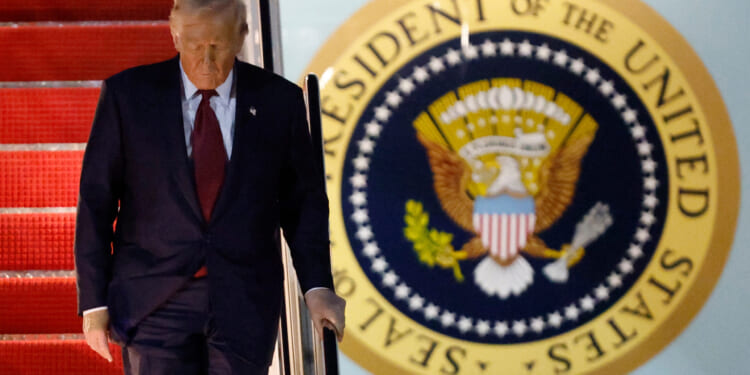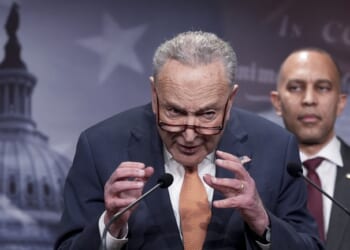Elections this week that energized Democrats and angered President Donald Trump have cast a chill over efforts to end the record-breaking government shutdown, raising fresh doubts about the possibility of a breakthrough despite the punishing toll of federal closures on the country.
Trump has increased pressure on Senate Republicans to end the shutdown — now at 37 days, the longest in U.S. history — calling it a “big factor, negative” in the poor GOP showings across the country. Democrats saw Trump’s comments as a reason to hold firm, believing his involvement in talks could lead to a deal on extending healthcare subsidies, a key sticking point to win their support.
Trump is refusing to meet with Democrats, insisting they must open the government first.
Travelers through some of the busiest U.S. airports can expect to learn Thursday whether they’ll see fewer flights as the government shutdown drags into a second month.
The Federal Aviation Administration will announce the 40 “high-volume markets” where it’s reducing flights by 10 percent before the cuts go into effect Friday, agency administrator Bryan Bedford said. The move is intended to keep air space safe during the shutdown, the agency said.
Experts predict hundreds, if not thousands, of flights could be canceled. The cuts could represent as many as 1,800 flights and upwards of 268,000 seats combined, according to an estimate by aviation analytics firm Cirium.
Central to any resolution will be a series of agreements that would need to be upheld not only by the Senate, but also by the House and the White House, which is not at all certain in Washington.
Senators from both major parties, particularly the members of the powerful Appropriations Committee, are pushing to ensure the normal government funding process in Congress can be put back on track. Among the goals is guaranteeing upcoming votes on a smaller package of bills to fund various aspects of government, such as agricultural programs and military construction projects at bases.
More difficult, a substantial number of lawmakers also want some resolution to the standoff over the funding for the Affordable Care Act subsidies that are set to expire at year’s end.
Trump’s approach to the shutdown meanwhile stands in marked contrast to his first term. During the shutdown in Trump’s first term, the government was partially closed for 35 days over his demands for money to build a border wall. At that time, he met publicly and negotiated with congressional leaders. Unable to secure the money, he relented in 2019.
This time, it’s not just Trump declining to engage in talks. The congressional leaders are at a standoff, and Republican House Speaker Mike Johnson sent lawmakers home in September after they approved their own funding bill, refusing further negotiations.
While some Democrats saw Trump’s comments on the shutdown Wednesday as evidence that he’d soon get more involved, he’s largely stayed out of the fray. Instead, the talks have intensified among a loose coalition of centrist members of the Senate trying to negotiate an end to the shutdown.
Trump has refused to negotiate with Democrats over their demands to salvage expiring health insurance subsidies until they agree to reopen the government. But skeptical Democrats question whether the Republican president will keep his word, particularly after his administration restricted SNAP food aid despite court orders to ensure funds are available to prevent hunger.
Grassroots Democratic groups nationwide touted Tuesday’s election results as voter approval of the shutdown strategy — and warned lawmakers against cutting a deal too soon.
“Moderate Senate Democrats who are looking for an off-ramp right now are completely missing the moment,” Katie Bethell, political director of progressive group MoveOn, remarked. “Voters have sent a resounding message: We want leaders who fight for us, and we want solutions that make life more affordable.”
Some Senate Democrats echoed that sentiment. Sen. Bernie Sanders, a Vermont independent who caucuses with Democrats and a leading voice in the progressive movement, said Democrats “have got to remain strong” and should secure assurances on extending healthcare subsidies — including “a commitment from the speaker of the House that he will support the legislation, and that the president will sign.”
The Western Journal has reviewed this Associated Press story and may have altered it prior to publication to ensure that it meets our editorial standards.
Advertise with The Western Journal and reach millions of highly engaged readers, while supporting our work. Advertise Today.












